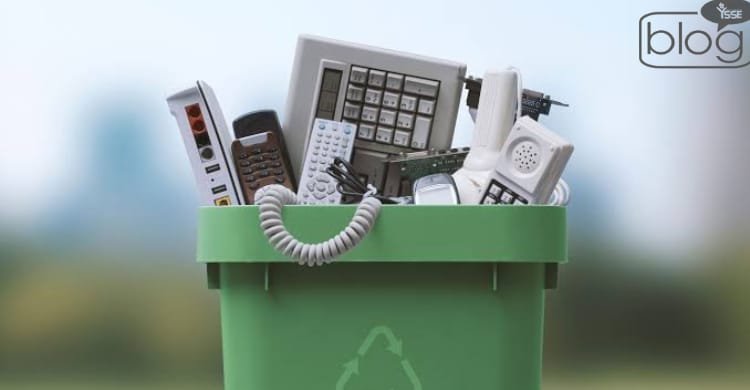In the era of modern technological advancements, the issue of electronic waste (E-Waste) has emerged as a significant environmental challenge. However, within this challenge lies a hidden opportunity to not only mitigate environmental harm but also to uncover considerable economic benefits. This exploration delves into the transformative potential of E-Waste, illustrating how discarded electronics can be converted into valuable dollars, thereby reshaping the future outlook of E-Waste management.
The Growing E-Waste Challenge
The Global E-Waste Statistics Partnership’s 2020 report unveiled a staggering figure: 53.6 million metric tons of E-Waste generated globally in 2019, with projections only set to increase as consumer demand for the latest technological gadgets continues unabated (Forti et al., 2020). A significant portion of this waste is not recycled properly, leading to the loss of valuable materials and contributing to environmental pollution (Baldé et al., 2017).
Economic Potential in E-Waste
At the heart of the E-Waste dilemma is a linear consumption model that neglects the value embedded within these discarded items. A shift toward sustainable practices and recycling innovations can reveal the economic goldmine that E-Waste represents. Precious metals such as gold, silver, and copper are found in much higher concentrations in electronic waste than in their natural ores. The prospect of recycling circuit boards, for instance, and recovering more gold than from an equivalent amount of gold ore, presents an attractive economic opportunity for industries to decrease production costs and generate new revenue streams.
Envisioning a Sustainable Future Through E-Waste
The journey from discards to dollars necessitates a multifaceted approach:
- Robust Legislation: Strong policies and regulations are essential to ensure the safe disposal of E-Waste and to foster recycling efforts.
- Educating Consumers: Increasing awareness about the impacts of E-Waste and promoting responsible disposal practices are critical for driving change.
- Innovations in Recycling: The development of more efficient recycling technologies is vital for enhancing material recovery and reducing the environmental footprint of E-Waste.
- Circular Economy Principles: By designing products for durability, reuse, and recyclability, we can significantly reduce the generation of E-Waste.
- Global Collaboration: Addressing the challenge of E-Waste requires worldwide cooperation to share knowledge, technology, and resources effectively.
Broadening the Economic Perspective on E-Waste
Beyond the immediate benefits of resource recovery, the economic implications of E-Waste recycling extend to job creation and the stimulation of green economies. Establishing and expanding recycling facilities can generate employment opportunities, particularly in regions lacking formal waste management infrastructure. Moreover, the push towards a circular economy fosters innovation in product design and recycling processes, contributing to economic resilience and sustainability.
Additionally, international trade in recycled materials can open up new markets, encouraging cross-border collaborations and the development of global standards for E-Waste management. Such initiatives not only facilitate the efficient reuse of valuable resources but also promote environmental stewardship on a global scale.
The Road Ahead: Transforming Challenges into Opportunities
The path from discards to dollars in E-Waste management is not without its hurdles. Yet, it is replete with opportunities for economic growth, environmental sustainability, and public health improvement. By re-envisioning E-Waste as a valuable resource, leveraging technological advancements, and promoting international cooperation, we can unlock its vast economic potential. This paradigm shift in the perception of E-Waste paves the way for innovative management strategies, heralding a future where electronic waste becomes a cornerstone of economic development and environmental protection.
In conclusion, the narrative surrounding electronic waste (E-Waste) is on the cusp of a transformative shift. From being seen as an environmental liability, E-Waste is increasingly recognized for its latent economic value, holding the promise of turning discards into dollars. This transition requires a concerted effort across policy formulation, consumer education, technological innovation, and global cooperation. By embracing a circular economy model, enhancing recycling technologies, and fostering international partnerships, we can unlock the untapped potential of E-Waste. This not only offers a pathway to sustainable environmental management but also opens up new economic opportunities, driving forward a green economy that benefits all. As we navigate the future of E-Waste, it’s clear that our collective actions today will shape the legacy we leave for generations to come—a world where technology advances without compromising our planet’s health or our economic well-being. Through embracing this challenge, we can transform E-Waste from a pressing issue into a sustainable opportunity, ensuring a brighter, more prosperous future for our global community.
To read more blogs, click here.
Writer :
Hafsa Begum
Intern,
Content Writing Department
YSSE

